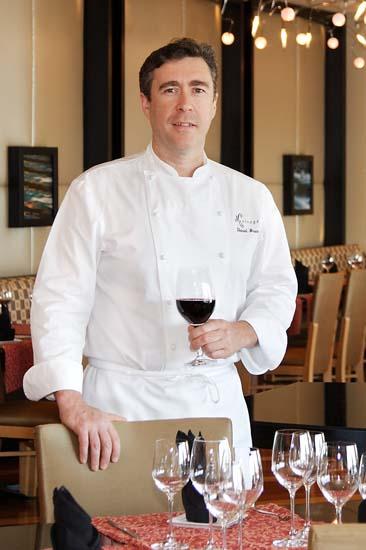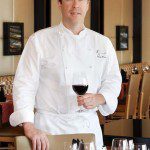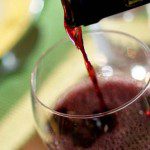The Capital Wine Festival Returns to DC
By • July 26, 2011 0 1099

When Chef Daniel Bruce created the Boston Wine Festival over twenty years ago, it was hardly driven by divine inspiration. “The initial reason for the wine festival is that it was a slow year,” he says with a chuckle. Since then, however, Bruce’s wine festivals have been steadily growing, spreading like gospel throughout the country.
This will be the second year that Bruce brings his wine festival to the District, hosted again by The Fairfax Hotel at Embassy Row. Calling the event a festival is a loose way to say it; the Capital Wine Festival is a series of wine dinners, in which each meal is constructed around a specific region or style of wine. Bruce brings in the winemakers and proprietors of each participating winery to discuss the wines and terroir of their particular regions, affording guests a uniquely intimate experience with their wine and food, and putting a distinct twist on the farm-to-table experience.
In order to be true to the wine he selects, Bruce goes about planning the dinners in a way that most chefs would never consider. He does not choose the wine to complement the food, but tailors the cuisine around the flavors of the individual wines. “There’s nothing worse than the wine coming off bad because the food wasn’t prepared right to go with it,” he says.
“Working with the wine makers has changed the nature of how I work,” he says, revealing a sincere and personal devotion to Cuisine, which he defines as a seamless blend of wine and food. “In a lot of ways, the winemakers are like chefs, bringing out the best flavors the grapes and the land have to offer.”
Bruce’s personal history with wine began around 30 years ago, while he was working abroad in Tuscany and France. “Wine there is part of the table,” he says. “Wine is just such a part of their culture. Just as regular as a food source.”
Growing up in the United States, where wine is not part of the culture, Bruce found the commonality of table wine in Europe to be a revelatory experience. The wine, almost always local, greased the evening conversation, drew out the night, and helped form bonds among friends and family.
Table wine also affected the flavor of the local food offerings. While it may not always have been perfectly constructed or balanced (though being Tuscan, it was probably damn close), the flavors of the land were so richly engrained within the wine that they complemented the surrounding cuisine like nothing Bruce had ever tasted.
When he returned to the States, Bruce went to more formal tastings, which opened his eyes to the potential and diversity of wine to complement different cuisines. He began pairing food and wine at dinner tastings for winemakers in the basement of Manhattan’s Club 21, working with the sommelier to choose the wines. Only after meeting and befriending the winemakers did he begin constructing his plans to showcase distinct regional wine varieties with tailor-made foods.
23 years ago, Bruce founded the Boston Wine Festival. He now has four around the country, including the French Quarter Festival in New Orleans, the Capital Wine Festival, and the Berkeley Wine Festival, which he kicked off in 2010.
Tasting the wine is Bruce’s first priority in putting together a dinner. It may sound like a well-dressed excuse to knock back some good vino, but it’s really no joke. He samples 3,000 wines a year, taking careful notes on each bottle. “My wine notes tend to be chef-driven,” he says. “Not wine driven. I might write down, ‘Belon oysters,’ next to a Chardonnay, or something that invokes food ingredients.”
He then chooses the winemakers based on a theme or a group that shows a spectrum of styles. The process falls somewhere in the infinitely coextending parameters of art and science. “I try to strike a balance,” he says simply, deceiving the complexity of this job. “It’s a matter of recalling the structure of the wine. I’ll find something that uses contrasting, parallel or compatible flavors. I use the flavor of the wine as a departing point for the food.”
Wines with higher acidity are easy to pair, he admits. That’s why Pinot Noir and Barolo are so often recommended at restaurants. When the wine is less acidic, he says, you have to be a little more careful with what you cook or you might overwhelm the plate. “Having tasted the wine, I know how far I’ll go with the intensity and flavors of the dish.”
He particularly likes cooking for Pinot Noir because, as he explains, it is a wine that is true to the terroir that it comes from, “Which, as a chef, gives me more options.”
“I do a dish created only for that wine,” Bruce says of his cooking philosophy. “There are subtle differences to all the wines. So why shouldn’t I honor that tradition by creating individual dishes?”
Bruce uses the wines he selects in the cooking process as well, from using syrups made from the varietal, to a marinade or glaze or herb reduction for meat and vegetables. Again, he only cooks with the wines he decides to feature, further displaying the versatility and flavors of each selection.
Bringing together winemakers and wine enthusiasts, the Capital Wine Festival celebrates great wine from around the globe. Prior to each dinner, guests will enjoy a reception or seminar before being seated for an evening of food and wine pairings. “When people get to meet the person behind the wine, it’s a great thing for them. They can go back and tell their friends, and they have a story. There is always a story behind a bottle of wine, and now they can be a part of it.”
Once a week, beginning on January 20, the Capital Wine Festival will host eight intimate wine dinners at the Fairfax Hotel at Embassy Row. For ticket purchases please visit CapitalWineFestival.com, or call 202-736-1453. Each dinner is limited to 60 guests.
- Chef Daniel Bruce, Creator and Director of Capital Wine Festival



